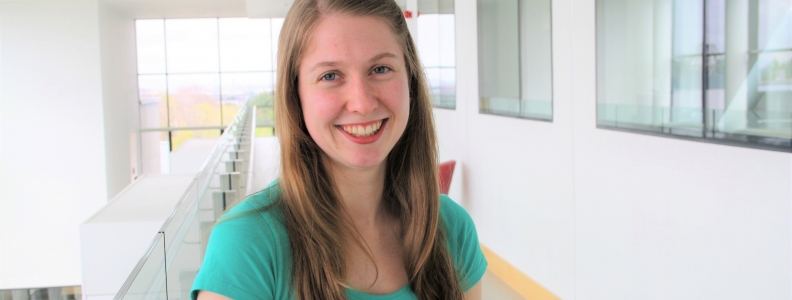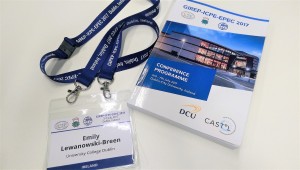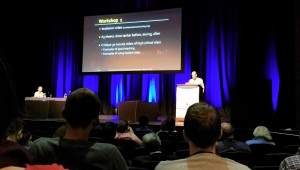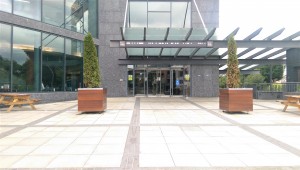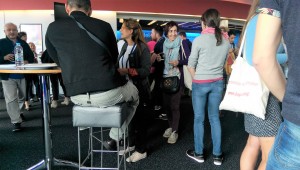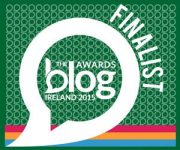Current UCD Biology, Mathematics & Education student, Emily, describes her experience of attending an international conference as an undergraduate student.
This summer, I had the opportunity to attend the GIREP-ICPE-EPEC 2017 International Conference, which was hosted by Dublin City University from 2 July to 7 July, 2017. The theme of this conference was “bridging research and practice in physics teaching and learning”. Whilst I am studying to become a Maths and Biology teacher as part of the Science and Maths Education in UCD, I felt it would be beneficial for me to gain insight into the teaching and learning of physics since I will also be qualified to teach Junior Cert Science. Additionally, I thought it would be a great experience to discover more about the world of research as it is my dream to one day pursue a PhD in maths education.
However, I will admit that I was both nervous and excited about the idea of attending my first conference as I didn’t really know what to expect. How will the conference be structured? What if I don’t understand the presentations? Will I be the only undergraduate student there? These are a few of the questions that came to mind as I made my way to DCU on the first morning of the conference. However, despite my initial concerns, it turned out to be an incredible experience and I really enjoyed every minute of it.
So back to my first question- “how will the conference be structured?” Well, each day actually followed a similar format. The mornings began with a one-hour ‘plenary session’ in the Helix at DCU, whereby a researcher or academic spoke about their work in the field of physics and science education. I particularly enjoyed the talk by Dr Paul van Kampen from DCU on “the teacher as a young professional” as I could really relate to the points he discussed. For example, he spoke about the importance of encouraging active learning in the classroom, which is something that is central to the Science and Maths Education programme in UCD. In fact, we always strive to make our lessons as student-centred and engaging as possible through the incorporation of groupwork and questioning. We even trial or discuss our lessons with one another during our education lectures and provide constructive feedback, which I find really helpful.
This being said, I also enjoyed the talk presented by Dr Bethany R. Wilcox from Colorado School of Mines on the use of interactive techniques to encourage student participation in lectures as it was interesting to see how other students learn at third level. I was particularly fascinated by the multi-solution problems she discussed as it is something that I hope to incorporate in my own teaching.
These plenary talks were followed by the ‘parallel sessions’, which consisted of a series of 20-minute oral presentations that took place at the same time but in separate rooms. There were around eight sessions taking place at any one time so the hard part was trying to decide which one to go to! Thankfully, the conference programme had detailed descriptions of each of the sessions, which made it a lot easier to plan out my day.
This brings me to my second question – “What if I don’t understand the presentations?” Well, I am delighted to say that each of the talks and presentations were actually very accessible, which was great considering that I am not from a physics background. In fact, I learned so much over the course of the week and even got a lot of ideas and inspiration for my own teaching. I particularly enjoyed learning about multidisciplinary activities, which are essentially activities that incorporate more than one area of science, thereby developing students’ problem-solving skills. For example, they had a physics worksheet on electricity but it had a biology context, which was something I had never seen before, but now hope to incorporate in my own science lessons. I also enjoyed the presentation by Dr Shane Bergin from UCD on the impact that informal learning environments have on students’ science identity as it was a very engaging session and it was great to learn more about Irish initiatives such as ‘City of Physics’ and ‘Quavers to Quadratics’.
However, I was particularly intrigued by the flipped classroom model, whereby students watch videos of lessons at home, allowing class time to be devoted to discussions and activities. I had heard of this teaching approach before but hadn’t realised the potential impact it can have on students’ learning, so it was interesting to learn more about it during the parallel sessions. Nevertheless, I was also delighted that a lot of the ideas and concepts we learn about in the Science and Maths Education programme in UCD were actually discussed during the conference because not only did it allow me to feel more engaged in the sessions, but it made me realise how far I have already come as a pre-service teacher. The discussions on the different types of knowledge required by science teachers, for example, really resonated with me given that we constantly reflect on the development of our own knowledge for teaching as part of our degree.
So now to answer my final question- yes, I was the only undergraduate student at the conference but this didn’t bother me in the slightest because everyone was so friendly and welcoming. In fact, I have come to realise that conferences are great for networking, even for undergraduate students. It was just such an honour to meet researchers, academics, and teachers from all around the world; everywhere from Brazil and Colorado to Sweden and Australia. I was particularly fascinated to hear how the Irish education system and teacher training programmes compare to other countries and was delighted to share my own experience of the Science and Maths Education programme in UCD. Some of the people I met were actually really impressed by the level of collaboration and team-work within my degree and even asked me for advice on how they could encourage it within their own teacher training programmes…so that was pretty cool! In fact, meeting new people was perhaps one of my favourite aspects of the conference because I enjoyed hearing about their experiences and research interests and was glad that I could contribute my own ideas.
Overall, the GIREP-ICPE-EPEC Conference was a very enriching and worthwhile experience and I would like to thank Dr Shane Bergin for inviting me to attend the event. I was truly inspired by the people I met and their dedication to improving the teaching and learning of physics and science across all levels of education. I definitely gained a lot from the experience and feel more prepared to teach physics at Junior Cert level as part of my upcoming fourth-year placement. In fact, I would highly recommend other undergraduate students to attend conferences because not only do they provide you with the opportunity to meet researchers at the forefront of their fields, but they also allow you to discover what a career in research might entail. You never know, maybe you will be just as inspired as I was- after all, undergraduates are the researchers of the future.


